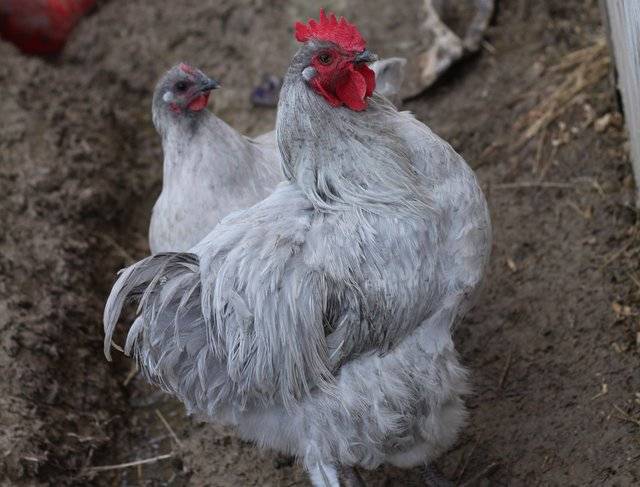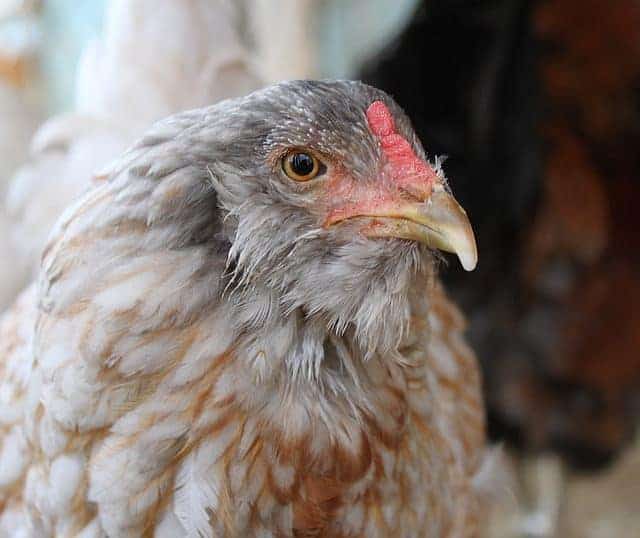This post was most recently updated on June 1st, 2021
Inevitably when an animal get sick on the farm, it is the weekend, or a public holiday. There are some effective home remedies that you can use on your chickens to tie you over until you can get medical assistance for them.
Please read: This information is provided for educational purposes only and is not intended to treat, diagnose or prevent any disease. We encourage you to make your own health care decisions in partnership with a qualified health care professional.
This post contains affiliate links, this means at no extra cost to you, we make a commission from sales. Please read our Disclosure Statement
are a great way to help care for your , and they are effective against several common .
Using some of these natural home remedies may give your chickens some relief and give you some time to source some more effective medication and advice from your local chicken vet.
There are also some proven natural antibiotics for chickens, that, for minor infections, can work a treat.
Note: I am not a vet! Please discuss any treatment with your vet first
You must be cautious when you are choosing to use (or any animal). Do not substitute for similar items and please talk to a vet as soon as possible about treating your .

There are a few natural antibiotics available to use with chickens. If you are running a free, , keep common at bay with these natural remedies without building in your flock. The following herbal remedies have been used by chicken keepers for hundreds of years and they are perfect if you are trying to raise an organic chicken flock.
Oregano is one of the most powerful natural antibiotics ever studied and has been found to be superior to many of the currently used antibiotics. is more potent than the fresh or dried , but in any form, it’s hard to deny the power of oregano.
Oregano can be a powerful and anti-microbial, and it works on , viruses and fungi in many cases.
has been classically used as a disinfectant, an aid for ear, nose, & throat/respiratory infections, candida, and any sort of bacterial or viral conditions in both humans and animals alike. Additionally, it works to suppress inflammatory mediators and cancer cell production ( 2 ).
It has also been shown to be affective against .
You can add a few drops of the oil several times per day to a or alternatively add 2-3 drops to their water every day while they are unwell.
Prevention is much better than cure, so you can offer (or even ) to them as a preventative measure on an ongoing basis.
Oregano works well with other natural antibiotics, and is particularly good in combination with cinnamon, garlic and tumeric. In higher doses to treat and in lower doses to keep numbers down.
If you really want to know how to use natural remedies in your everyday life – my friends at the Herbal Academy have a wonderful, affordable beginners course that you really should check out here.
Cinnamon
Cinnamon is another spice that has been shown to have great properties. You can add some of this to their feed a few times per week to help prevent infections.
Alternatively, to treat sick chickens, you can make a tea with 1 cinnamon stick and 1 cup of boiling water and allow it to steep for 10-15 minutes. Remove the stick and then feed the tea to your .
Garlic
Garlic is a well known , and it can be added as dried granules to their feed, 1/4 tsp per per day as a preventative measure. You can also add whole cloves of garlic to their drinking water, replenishing them every few days.
If your is unwell, you can increase this dose significantly without causing harm (other than making their eggs taste weird).
It seems that it is the sulphur compounds in garlic that are the most beneficial, but used as a food-medicine it is more effective than just the sulphur alone.
is particularly useful if you are raising broiler chickens as it helps keep their gut balanced, their strong, and will ensure they are getting the most out of the feed that they are eating.
ACV acts as as well, keeping their balanced and healthy while discouraging .
RELATED POST: Raising chickens on the cheap
Chicken Natural Home Remedies for your Sick Chicken
If your chicken is unwell, try these natural remedies to help support their recovery.
1) or White Vinegar
The acetic acid in vinegar is the active ingredient. It lowers the pH, which kills many pathogens including most bacteria and viruses, and it can be effective against yeast growth as well. Vinegar can be used as a home remedy with chickens to help reduce and clear the mucous in the throat of a bird that has respiratory disease.
Vinegar can also be used to re-balance the acidity of the crop if the has sour-crop. In some cases of enteritis it can also help when added diluted to their drinking water.
Dose
50ml vinegar to 2 liters of water (1/4 cup vinegar to 1/2 a gallon of water). Give for 2-3 days as the only drinking water available to them in the .
Warning: Do not give straight vinegar, it is too strong and it will burn their mouth and throat tissues.
2) Molasses Solution
Molasses works as a gentle laxative, as well as a mineral supplement. Molasses has simple sugars in it that can help revive a that has not been eating well.
A laxative is useful if a has eaten a toxic plant or it has been scouring due to a bacterial illness.
Dose
In 2 quarts/liters of warm water, dissolve 1/4 cup of molasses. Offer this to the birds for 4-6 hours then replace it with clean drinking water.
3) Sugar Solution
If you have a sickly, lethargic , they need some glucose to keep their energy up. This is helpful for newly hatched chicks if they have had a prolonged hatching or if they have travelled a long way.
Dose
1oz (28g) of table sugar, glucose powder or honey in 2 cups (400ml) of warm water, stir until dissolved. Give a small amount regularly until the chick is perky and up and cheeping and moving around the .
4) Honey
When applied to the skin, honey helps to reduce swollen tissues by drawing out excess fluid. You can use it on swollen prolapsed tissue, to shrink it enough to be gently pushed back inside the vent.
Smear honey over the swollen area and leave for about 1 hour to reduce in size, try and keep the prolapsed still and quiet while you wait.
5) Electrolytes
Electrolytes help chickens to recover from illness and stress faster and better. If a is not eating, has diarrhoea, has been over heated, or dehydrated then electrolytes in the water are helpful.
You can buy ready made electrolyte mixes or you can mix the recipe below. Use in place of drinking water for one week.
RELATED POST: Natural dust bath
Chicken electrolyte recipe
1 teaspoon of potassium chloride (litesalt or nosalt)
1 1/2 teaspoons of baking soda
3 teaspoons of table salt
Dissolve in 3 quarts/liters of warm water. Use in place of water for one week.
How do you treat a naturally?
If you have an unwell , it is best to find out what is wrong with it first. If there is no obvious cause for why it is off colour, you can give her a few days of alone time to see if she perks up.
Bring your inside to somewhere warm, dark (not totally dark during the day!) and quiet. Give her highly nutritious feed ( you should try fermenting it ) and plenty of fresh water.
Add the right treatment regime as above depending on what is wrong with your and give her 3 or 4 days rest to see how she goes. She is ready to rejoin the flock when she is acting like her normal self, and is eating and drinking well.
Natural Treatment for
(or fowlpox) is a highly contagious that is carried by mosquitos. Once a has it in your flock it is likely that others will catch it.
What is ?
It is caused by viruses of the family Poxviridae and the genus Avipoxvirus. There are several similar but different viruses causing fowlpox, they can affect chickens, turkeys, quail, canaries, pigeons, and many other species of birds.
There are two forms of the . One (the dry form) is spread by biting insects (especially mosquitoes) and wound contamination from others that already have the virus. This type causes lesions on the comb, wattles, and beak. Birds affected by this form usually recover within a few weeks with supportive care.
The second form of fowlpox is spread by inhalation of the virus and is known as the wet form. It causes a diphtheritic (false) membranes to form in the mouth, pharynx, larynx, and sometimes the trachea obstructing their ability to breathe. A affected in this way is unlikely to survive.
How to treat a with
The kindest thing you can do for a with is to cull it and bury or burn the body before it passes it on to other chickens. If you cannot bring yourself to do that, there are some things you can do to support her healing.
If your has been infected with fowlpox keep her in isolation from the rest of the flock. Give her plenty of fresh food, a balanced grain feed and fresh water. Adding and crushed garlic to her water will help support her immune system while it fights off the virus. Keep her warm and dry, and in a low stress, darkened environment. It usually takes about three weeks for the virus to run its course.
If is an issue in your area, it is recommended that you vaccinate against it.
Can infect Humans?
No, it is species specific and cannot be passed on to humans. It is quite different to pox that humans get.
in chickens
There are many that can occur in your . Some respiratory diseases are so subtle that you will barely notice them, others can cause catastrophic losses in your backyard chicken flock.
that are affected by a in an isolated so she cannot contaminate the rest of your birds is a really good idea. Many share these diseases, so be sure to watch out for spreading in all your birds.
Respiratory illnesses can affect their laying, causing a drop in . of in your include:
- Listlessness
- Lack of appetite
- Less
- Mucous around the nostrils or eyes
- Sneezing
- Coughing
- Shallow, rapid breathing
- Death
respiratory diseases are highly contagious. They cause a lot of trouble year after year in infected flocks, which are constant threats to uninfected flocks. It is impossible to tell which recovered birds are carriers of without testing each of them. Antibiotics make affected chickens feel better and may save a few that would have died without treatment, but antibiotics don’t cure the in carrier birds or eliminate the from the whole flock or the environment.
You have three options
- Cull just the sick birds
- Cull the whole flock (most effective with highly contagious, catastrophic diseases)
- Give antibiotics to both the sick and well birds to prevent spreading the .
|
Disease |
Occurrence |
Signs of Illness |
Average Mortality Rate % |
|
Avian influenza / Bird Flu |
Rare (Deadly strains are absent from chickens in the United |
Droopy birds, rattling breathing sounds, diarrhea, sudden |
5–99 |
|
Fowl cholera |
Not common, not in NZ |
Swollen face, gunky eyes, rattling or difficulty breathing, |
0–20 |
|
Infectious bronchitis |
Common |
Decreased egg production, later will have poor shell quality |
Usually none |
|
Infectious coryza |
Common, not in NZ |
Swollen face or wattles, gunky eyes, foul odor, more common |
5–20 |
|
Infectious laryngotracheitis (ILT) |
Not common |
Gasping, coughing up bloody mucous, dried blood around nostrils |
10–20 |
|
Mycoplasmosis |
Common |
Foamy eye discharge, more common in winter, roosters usually |
Usually none |
|
Newcastle disease |
Mild strains are common. Highly deadly strains are absent from |
May also cause diarrhea, staggering, paralysis, sudden |
5–99 depending on strain |
for
is a common that happens when the in the birds crop get out of balance. This causes a lowering of the acidity of the crop which in turn allows more bacterial imbalance. A crop with poor acidity cannot digest food well and the chickens will fail to thrive.
One of the best and easiest methods of helping a hen with is to add to their water. This helps to increase the acidity, reintroduces good bacteria and helps dissolve the undigested food. Be sure to dilute the vinegar by adding it to their water, as straight vinegar will damage their delicate tissues in their mouth and throat.
in chickens
is a common protozoa in . Not all chickens that carry will be affected by it, but those that are affected will struggle to absorb nutrients and many will die.
There is no for , however some lines of chickens can build resistance to it. The usual treatment for in chickens is Amprolium which is a synthetic form of vitamin B1 which starves out the and saves the if caught early enough. It is best to routinely treat for either with medicated water 3-4 times a year or by usuing a coccistat (medicated feed).
I trust this information on that might affect your flock has been helpful. Use these natural antibiotics for your chickens, and other natural ways of treating sick chickens to keep your flock healthy and well.
So there you are, 5 easy home remedies to help keep your chickens healthy.
Please be sure to pin and share!










